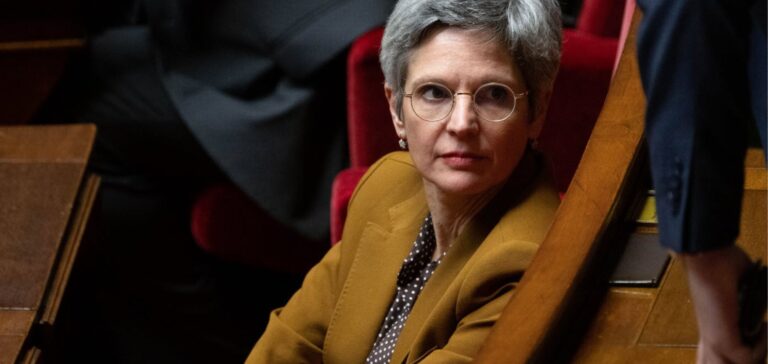The Green MP Sandrine Rousseau considered Friday “absolutely irresponsible” the “European regulatory pause” in environmental standards called for Thursday by Emmanuel Macron, while it is necessary, according to her, “to increase them”.
“Green industry tax credit”, overhaul of the car bonus: the President of the Republic unveiled on Thursday his strategy to “accelerate” the “reindustrialization” of France, also calling on the European Union to make “a regulatory break” in environmental standards.
Outcry from the left
“This is absolutely irresponsible,” the EELV deputy was indignant on franceinfo. We talk about annihilation of biodiversity. We do not have to lift environmental standards. We have on the contrary to increase them”. “There is no green growth, it does not exist, so we must reduce our consumption levels and it is not by producing more stuff that we will call green that it is better,” she warned, urging to “change our economic model.”
“Emmanuel Macron thinks that unlimited growth in a finite world is possible and it is no longer possible, we have an emergency that is really to change our modes of consumption and production and go towards sobriety, “she insisted. “It is the opposite that must be done to reindustrialize the country. It is necessary to harmonize upwards the social and environmental standards, therefore on a European scale, because the first dumping and the first relocations, it is within Europe”, estimated for her part on franceinfo the general secretary of the CGT Sophie Binet. “We must have a protection of European borders to tax products that are not produced with these same social and environmental standards,” she added.
Clarification of the Élysée
Emmanuel Macron called Thursday for “a European regulatory pause” on environmental standards, saying that the European Union had done “more than all its neighbors” and now “needs stability. The Elysée, however, insisted that Emmanuel Macron had not asked for a suspension, nor a moratorium and even less for a repeal “of the current standards under discussion.” The head of state is due to visit the Aluminium Dunkerque plant on Friday and to make official new investments, including the establishment by the Taiwanese group ProLogium of a fourth battery plant for electric vehicles in France, to start production at the end of 2026.






















